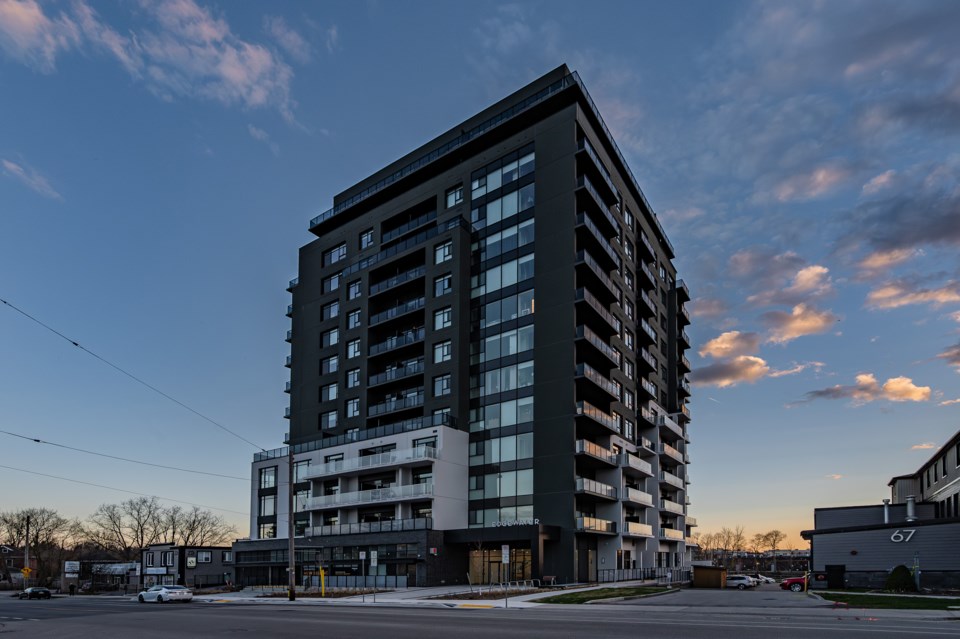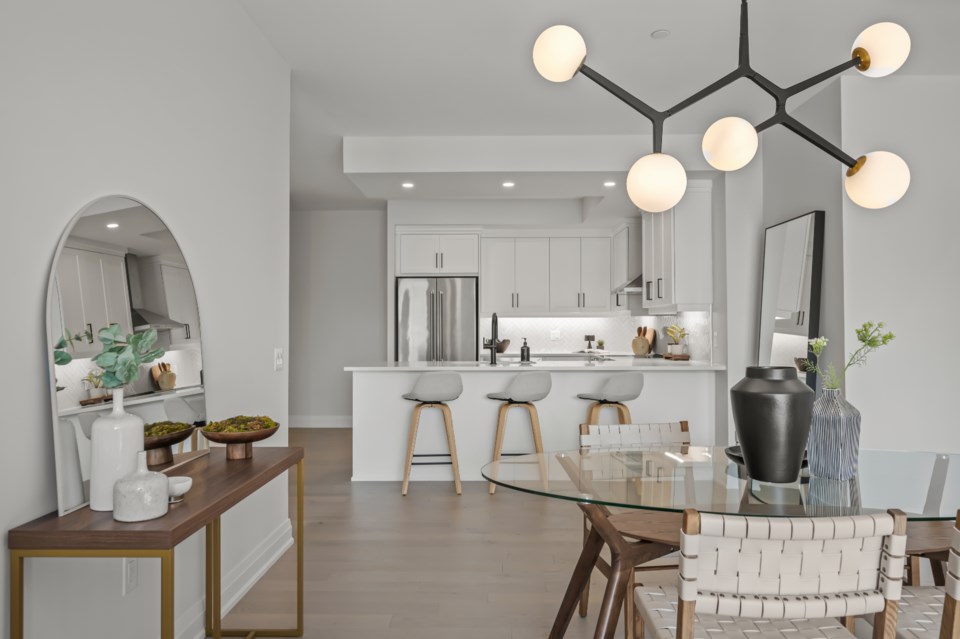The current shortage of affordable housing, including rentals, affects everyone who must rent, especially students.
For some, buying is a way to secure suitable housing now and invest in their child’s long-term success.
Tom Pridham recently bought a 1-bedroom condo in Tricar’s Edgewater Condominiums for his 25-year-old daughter, who just started her second degree. The condo, located at Wyndham Street and Wellington, is close to her school, which was their goal.
As an undergraduate, his daughter had already experienced the full range of living arrangements. She had lived in residence, then with roommates for years. “Now, going into graduate school, she wanted her own accommodations to focus on school,” says the proud father.
The decision made good financial sense for the family. A 1-bedroom apartment would cost around $2,000 a month to rent. “And ultimately, you have no equity,” he says. “I wanted her to get ahead in the game without external factors affecting her; all she has to do is go to school.”
Their initial plan wasn’t to buy, but the rent was outrageous. “It’s not so bad if 4 or 5 people share that $2,500 a month, but when one person pays $2,000, that pushed us towards purchasing instead of renting.”

The unit was purchased in his daughter’s name and is her asset to use as she wishes. She’s working in a clinic in Guelph right now and can stay here after graduation or sell it, move, and find accommodation elsewhere. She plans to live in Guelph after school, which influenced their decision to buy something for the long-term.
Pridham isn’t new to owning investment properties. He understands he’s fortunate to do this for his daughter. “Ultimately, it depends on everyone’s financial circumstances. But if you can do it, come up with a down payment, and the rent is probably equal to your mortgage payments, you can gain appreciation over the 4-year term,” he says. With this purchase, there was no HST, making it a good deal.
He acknowledges that not everyone can afford a couple of thousand per month for rent. However, if you can and have the down payment, it’s worth considering. While you’re not paying down a large amount of the principal in that short time, “you can pocket the appreciation.”
“We were fortunate to rent for a month from August to the start of school to familiarize ourselves with the property,” says Pridham. “The builder arranged that and we appreciated it. My finances weren’t sorted out until September, so they rented to us for a month and that worked out well.”
Mortgage broker Cody Doiron says if parents can afford it, it’s a great opportunity to provide your children with a secure place to live and increase your wealth with an investment property.
“Weighing the rent and utilities against the expenses of owning a home (interest, property taxes, condo fees, utilities, maintenance, and upkeep, etc.) is crucial in your decision-making,” says the broker.

His advice is to weigh all costs in the purchasing process and monthly liabilities versus current renting options for your children. If enough of the monthly payments go towards principal versus the cost of owning the property as opposed to rent, it could be beneficial over time. Factor in the property’s appreciation over the ownership duration, as Pridham noted.
Doiron suggests contacting a professional to understand if this option is feasible for you and getting pre-approved for a second property.
“Many clients underestimate what they can afford for a second property or a new home, thinking they need to sell, which isn’t always the case. You can keep your current home as a rental and add an additional income source.”
Real estate investors need to work with an insurance broker or professional who understands investment properties.
“A rental property, especially student rentals, isn’t insured the same as your personal home,” says insurance broker Michael Durigon. “Coverage and price can vary greatly between companies, but there are comprehensive products for student rentals that aren’t significantly more expensive than your personal home insurance if you work with the right professional.”
He says a student rental owner needs to insure the property for 12 months. There can be vacancy exclusions on the policy, so working with an experienced insurance professional who understands student rentals is important.
Other considerations? There’s higher liability exposure than with a personal home. The most important thing is to have a commercial insurance policy covering landlord exposures. “The industry standard is $2,000,000 liability, but it’s not much more to increase it to $5,000,000 or more.”
Investors should note that student rental insurance policies often have reduced limits for certain perils (i.e., water damage or sewer back-up) and more exclusions. “Understanding the coverage and exclusions is important, and an experienced insurance professional can explain this and offer the best available policy,” says Durigon.
Pridham and his daughter couldn’t be happier. “It has worked out exactly as we’d hoped—it’s like an oasis for her.”
If you’re a parent weighing whether to rent or buy, contact REALTOR® Nick FitzGibbon at 519-821-3600. Follow him on Facebook and Instagram @nickfitzgibbon.
